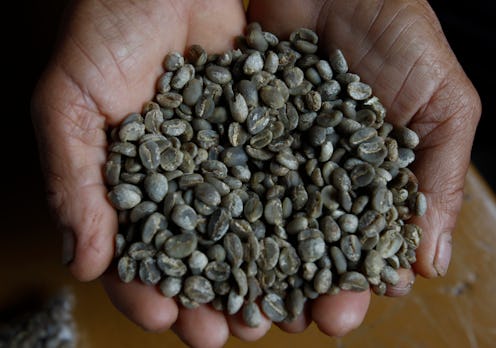As a native of Seattle, Washington, the caffeine capital of the U.S.A., I'm constantly in search of the perfect cup of coffee — something that can achieve a bold, robust flavor without an astringent aftertaste or something a little lighter with caramel or chocolate notes that don't mask the actual flavor of the bean. There are fewer things better than starting your day off with a delicious cup of coffee, and the things that are better actually still involve coffee as well, like midday coffee-naps and using coffee as an aphrodisiac.
To help keep us happily wired, a team of scientists claims to have discovered the genetic makeup of the Robusta coffee bean, which accounts for 30 percent of the entire world's coffee population. They hope to use that information to grow a "super-coffee" plant which will be resistant to pests, diseases, and droughts (qualities that the Robusta bean already has) and will have the added benefits of more caffeine and a better flavor.
Because coffee has a lot of cultural and economic implications, not only for consumers but also for farmers, it's important to consider what a genetically modified coffee crop would do to the hundreds of thousands of people employed growing coffee. According to Medrano, a researcher at UC Davis, modifying the crop would actually help to keep people employed and prices low. A significant amount of coffee crops were damaged last year in Central America after a sudden climate shift which hiked the prices of the crop but, more importantly, put about 370,000 people out of work. He says, "There is an opportunity in the future to do GMOs, but our interest at UC Davis is to apply plant breeding technologies to improve the sustainability of coffee."
There are lots of coffee innovations in the works, including companies that cut down the supply chain so that more money goes to farmers, and others that direct proceeds to location charities. Sustainable coffee, happy coffee farmers, and happy coffee consumers — what else could we possibly need?
